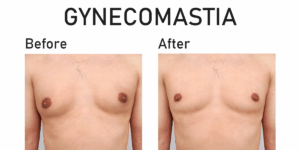Rhinoplasty, commonly known as a “nose job,” is a favored cosmetic surgery aimed at enhancing the nose’s appearance and function. Recovery is an essential phase where patients need to understand what to expect. Post-surgery care is crucial for a smooth healing journey. In NYC, plastic surgery patients are often well-prepared with information about the recovery process. Knowing the potential for swelling, discomfort, and necessary follow-up appointments can help manage expectations. This knowledge allows for a more comfortable and successful recovery, ensuring patients feel prepared for the changes and challenges they might face.
Immediate Post-Surgery Expectations
Patients will awaken in a recovery room where medical staff monitor them closely. You can expect to feel groggy and mildly nauseous from the anesthesia. It’s normal to experience some bleeding, swelling, and bruising around the eyes and nose, especially in the first 24 hours. Sensations of tightness or pressure in the nasal area are also common. Having someone to help you get home and assist with basic tasks initially is crucial. Rest, hydration, and following your surgeon’s care instructions will lay the groundwork for a smoother recovery.
Managing Discomfort and Swelling
Swelling and discomfort are common after rhinoplasty. To help manage these symptoms, keep your head elevated as much as possible, including while sleeping. Cold compresses can be applied to reduce swelling and offer relief. For pain management, your doctor will prescribe medication, but over-the-counter options like acetaminophen can also be effective. Avoid anti-inflammatory drugs like ibuprofen, as they may increase bleeding. Following your surgeon’s specific care instructions is crucial to minimize discomfort and ensure proper healing.
Importance of Rest and Self-Care
Rest is a crucial part of the healing process after rhinoplasty. During the initial week, focus on activities that require minimal effort to allow your body to recover. Avoid bending over, lifting heavy objects, or any exercise that might strain your body. Gentle self-care routines, such as light stretching, short walks, and deep breathing exercises, can aid in your recovery by promoting circulation without overexertion. Creating a calming environment at home can also be beneficial. Consider incorporating relaxation techniques like meditation, calming music, or light reading to reduce stress. Ensuring your living space is organized and comfortable can help you feel more at ease and support your overall well-being during this recovery period.
Diet and Nutrition During Recovery
Emphasize nutrient-rich foods to boost healing after rhinoplasty. Incorporate leafy greens, fruits rich in vitamin C, and lean proteins into your meals. These foods support tissue repair and bolster the immune system. Staying hydrated is essential, so aim to drink plenty of water daily. Reduce sodium intake to minimize swelling, and avoid processed foods that can hinder recovery. Small, frequent meals can be easier on your body than large meals, helping to maintain energy levels without overburdening your digestive system. Eating mindfully and using whole, unprocessed foods will facilitate a smoother recovery.
Follow-Up Appointments and Monitoring Progress
Regular follow-up appointments are key to ensuring your recovery stays on track. Your first post-operative visit typically happens within a week after the surgery. These appointments allow your doctor to monitor your progress, remove splints or stitches, and address immediate concerns. During these visits, your surgeon will examine the alignment of your nose and check for any signs of infection or complications. It’s essential to keep all scheduled appointments and communicate openly with your doctor about any symptoms or questions. Regular monitoring helps identify and address potential issues early, contributing to a smoother and safer recovery process.
Returning to Daily Activities
Returning to daily activities after rhinoplasty should be a gradual process. Light activities, such as walking, can typically be resumed within a few days to promote circulation. However, to prevent complications, it’s essential to avoid any strenuous activities, heavy lifting, or intense exercise for at least four to six weeks. Pay attention to how your body responds to different activities. If you experience discomfort or swelling, it may indicate that you need more rest.
Driving should be avoided while you are still taking prescription pain medications, as they can impair your reaction times. When you return to work, arrange a lighter schedule, especially in the first week. This can help you ease into your routine without overexerting yourself.
Be mindful of activities that might risk bumping your nose, such as contact sports or crowded places. Even seemingly harmless activities, like wearing glasses, may require adjustments or special considerations as your nose heals. Consult your doctor before resuming any activity that might affect your recovery. Listening to your body and following professional advice can ensure a safer and smoother transition back to your regular routine.
Final Thoughts on Rhinoplasty Recovery
Patience and a positive mindset are crucial during rhinoplasty recovery. While some initial results can be seen within a few weeks, the healing process can take several months. It’s essential to give your body the time it needs to heal properly and to adhere strictly to your surgeon’s guidelines to avoid complications. Emotional ups and downs are routine, and having a sound support system can be incredibly beneficial.
In NYC, plastic surgery patients can tap into various resources for recovery advice, whether it’s from healthcare professionals, online forums, or local support groups. Connecting with others undergoing the same procedure can offer valuable insights and emotional support.
Remember to document your progress with photos and notes. This can help you and your surgeon track healing and make necessary adjustments. Keep an open line of communication with your healthcare provider, reporting any unusual symptoms immediately.
Lastly, trust the process. Each person’s recovery journey is unique, and while it might be tempting to compare your progress with others, focus on your healing. Consistency in following post-operative care instructions, maintaining a healthy lifestyle, and keeping follow-up appointments will contribute significantly to a successful recovery.
Schedule Your Consultation
To schedule a consultation with our board-certified plastic surgeon, please contact our office at (212) 717-8550 or use our online form, to schedule a consultation with Dr. Scot Glasberg to discuss the options available for you.







